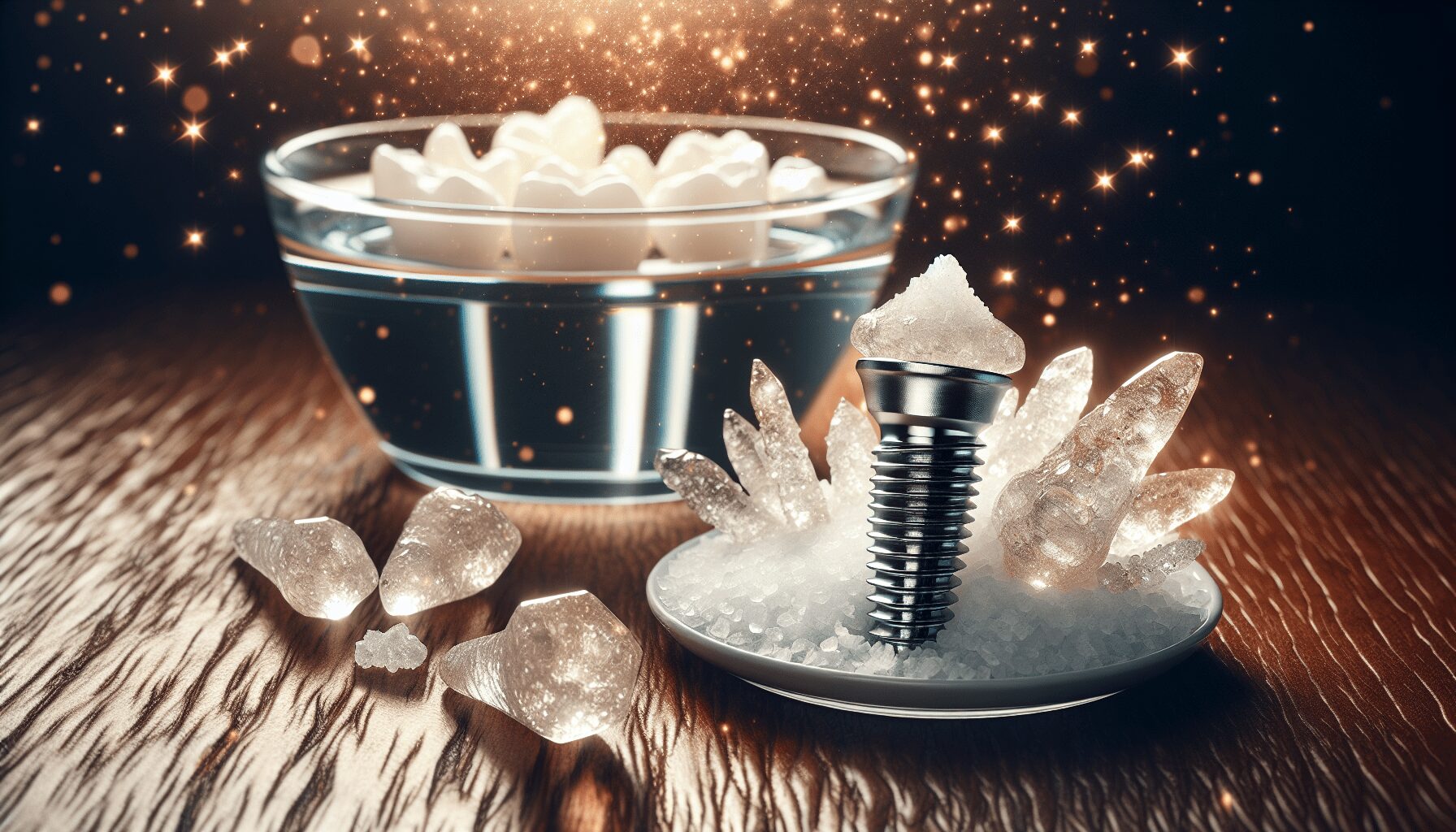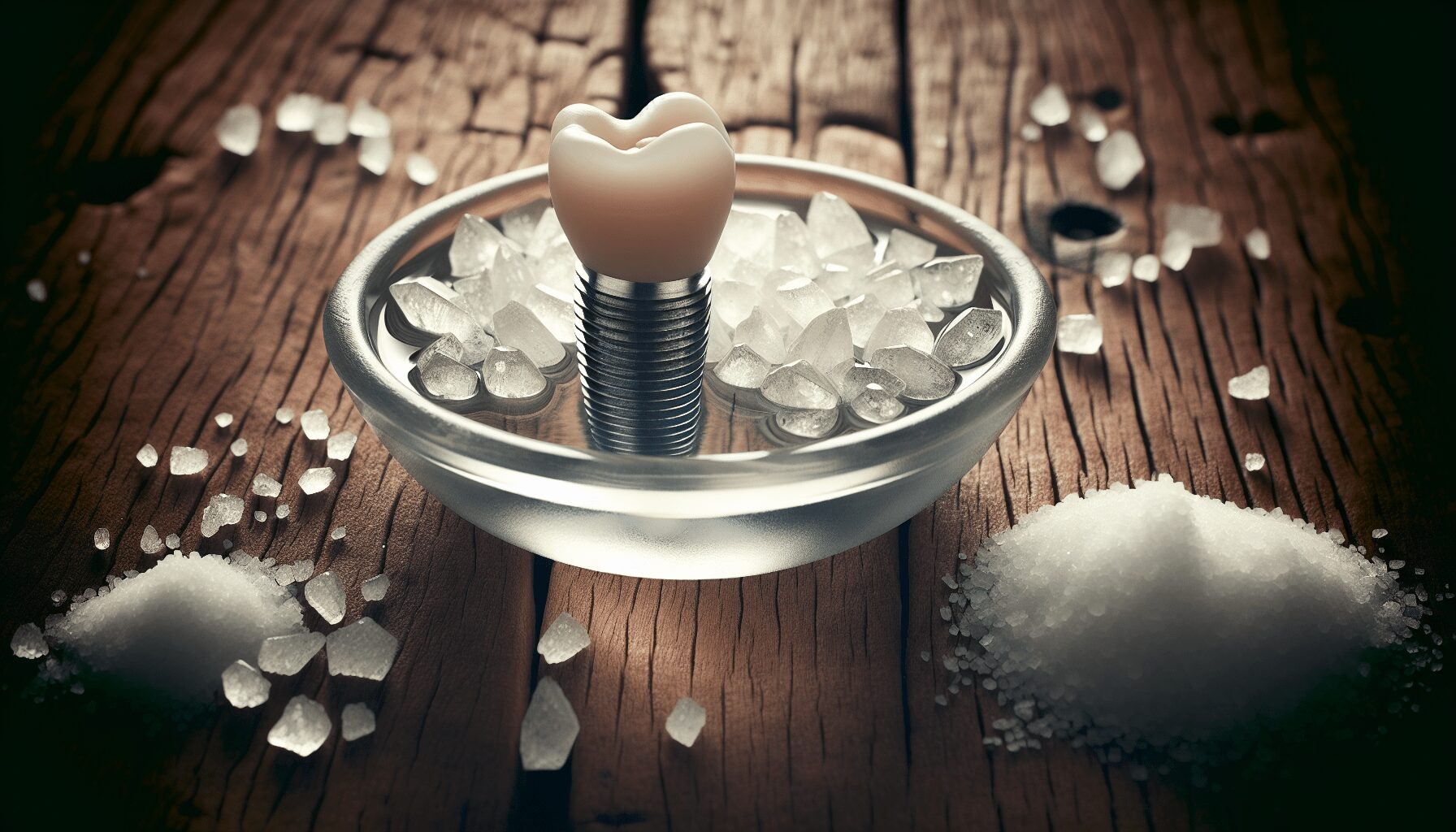Does Salt Water Help Heal Dental Implants?
Have you ever wondered if salt water could be the secret ingredient to helping your dental implants heal? If you’re exploring solutions for your post-surgery care, this question might just come up. While it sounds like a simple remedy, the science of oral care can surprise you with its nuances and facts.
What are Dental Implants?
Dental implants act as artificial roots for missing teeth, providing support for crowns or bridges. Made typically from titanium, they fuse with the jawbone through a process known as osseointegration. This integration is crucial for the implant’s stability and longevity. Success depends not only on the surgery itself but also on how well you care for the implants afterward.
The Journey of a Dental Implant
The process begins with a thorough evaluation by your dentist, who assesses the condition of your jawbone and overall oral health. Once cleared, the titanium post is surgically placed into the jawbone. Afterward, a healing period allows the bone to fuse with the metal, ensuring robust support. This phase can take several weeks to months. Finally, a crown or bridge is placed on the implant, completing the procedure.
Healing After a Dental Implant Surgery
Your body needs time and care to heal properly after dental implant surgery. During this phase, proper aftercare can make a significant difference. A critical part of this care is maintaining good oral hygiene while avoiding actions that may disrupt the healing process.
Common Concerns Post-Surgery
Pain, swelling, and minor bleeding can occur after surgery, but these symptoms usually subside with proper care. Your dentist may recommend pain relievers and a specific oral care routine to follow. Simple precautions like avoiding hard or crunchy foods can help. The role of an oral rinsing agent, like salt water, often comes into play here.
Salt Water Rinse: A Traditional Remedy
Salt water rinse is a long-standing oral care practice. Many believe in its natural healing properties, given its ability to cleanse and soothe. But how exactly does it interact with dental implants? Let’s explore this more thoroughly.
Why Salt Water?
Salt water, a mixture of salt and warm water, has antiseptic properties. It can help reduce bacteria levels in the mouth and promote healing. Warm salt water helps soothe tissue inflammation, acting as a natural cleanser without the harsh chemicals found in some mouthwashes.
How to Prepare a Salt Water Rinse
Creating a salt water rinse is simple. Mix a teaspoon of salt in a cup of warm water. The water should be warm enough to dissolve the salt but not hot enough to burn your mouth. Swish the solution gently in your mouth for 30 seconds to a minute before spitting it out.
Benefits of Salt Water After Implant Surgery
Using a salt water rinse can benefit your gum tissue and surgical site. Let’s discuss how this natural remedy can support your dental implant.
Reducing Inflammation
The warm salt water can help minimize swelling, a common post-surgery issue. Swelling can hinder healing, and by reducing it, salt water contributes to a smoother recovery process.
Preventing Infection
While salt water doesn’t sterilize the mouth, it can lower bacteria levels. By doing this, it helps prevent infections that could jeopardize the newly placed implant. Regularly rinsing with salt water can keep the area clean and free from harmful bacteria.
Supporting Tissue Healing
Salt water can aid in tissue regeneration. By maintaining a clean environment, it allows your body’s natural healing processes to work more effectively. Over time, this care builds a foundation for the implant to integrate well with the jawbone.
Limitations of Using Salt Water
Salt water has its benefits, but it’s not a cure-all. It’s important to understand where its limitations lie, ensuring you don’t solely depend on it for post-surgery care.
Insufficient for Comprehensive Care
Salt water can’t replace comprehensive oral hygiene practices. Brushing and flossing remain crucial components of dental care. While salt water helps, relying on it alone isn’t sufficient to maintain optimal oral health.
Not a Substitute for Professional Advice
Consulting your dentist is necessary after implant surgery. They provide guidance tailored to your specific situation. Use salt water as a complementary aid, but don’t skip on professional recommendations and follow-ups.
Sweet Water Dentistry: Your Partner in Oral Health Care
Sweet Water Dentistry, located in Fairhope, AL, is dedicated to your oral health journey. With Dr. Phillip N. Greer at the helm, we aim to provide top-notch dental services in a welcoming environment.
Comprehensive Services Offered
We offer an array of services from routine checkups to advanced dental procedures. Our team strives to give you and your family the information needed to make informed decisions about oral health. Whether it’s advice on post-surgical care or routine cleanings, we’re here to help.
Building Trust with Our Patients
Trust is at the core of our practice. We endeavor to build long-lasting relationships with our patients through exemplary care and transparent communication. As part of our dental family, we ensure you receive the best care possible.
Your Personalized Oral Care Plan
Personalized care makes all the difference in your healing journey. Salt water is useful but should be part of a more comprehensive plan. For optimal results, combine it with professional advice and consistent oral hygiene practices.
Your Role in the Healing Process
After implant surgery, what you do makes a significant impact. Conscientious care, including salt water rinsing, aids in healing. However, paying attention to dentists’ recommendations is equally critical.
Ensuring Longevity of Your Implants
Your implants are an investment in your health and confidence. Proper care and maintenance increase their lifespan significantly. Regular checkups and diligent at-home care are key to preserving and ensuring their success.
Conclusion
Salt water can indeed play a role in helping heal dental implants. Its natural properties can aid in reducing inflammation and controlling bacteria, making it a valuable tool in your aftercare toolkit. However, it’s not a one-stop solution. Combining it with professional guidance and maintaining robust oral hygiene practices ultimately ensures a successful healing journey. Embrace a holistic approach to care, and your road to recovery will be a rewarding experience.
Schedule A Consult with Us!
Visit us for expert care:
Sweet Water Dentistry
📍 5915 Sweetwater Cir, Fairhope, AL 36532
🌐 sweetwatersmile.com
📞 Call or Text: (251) 210-2773
Follow us on Facebook and Instagram for the latest updates and special offers!



